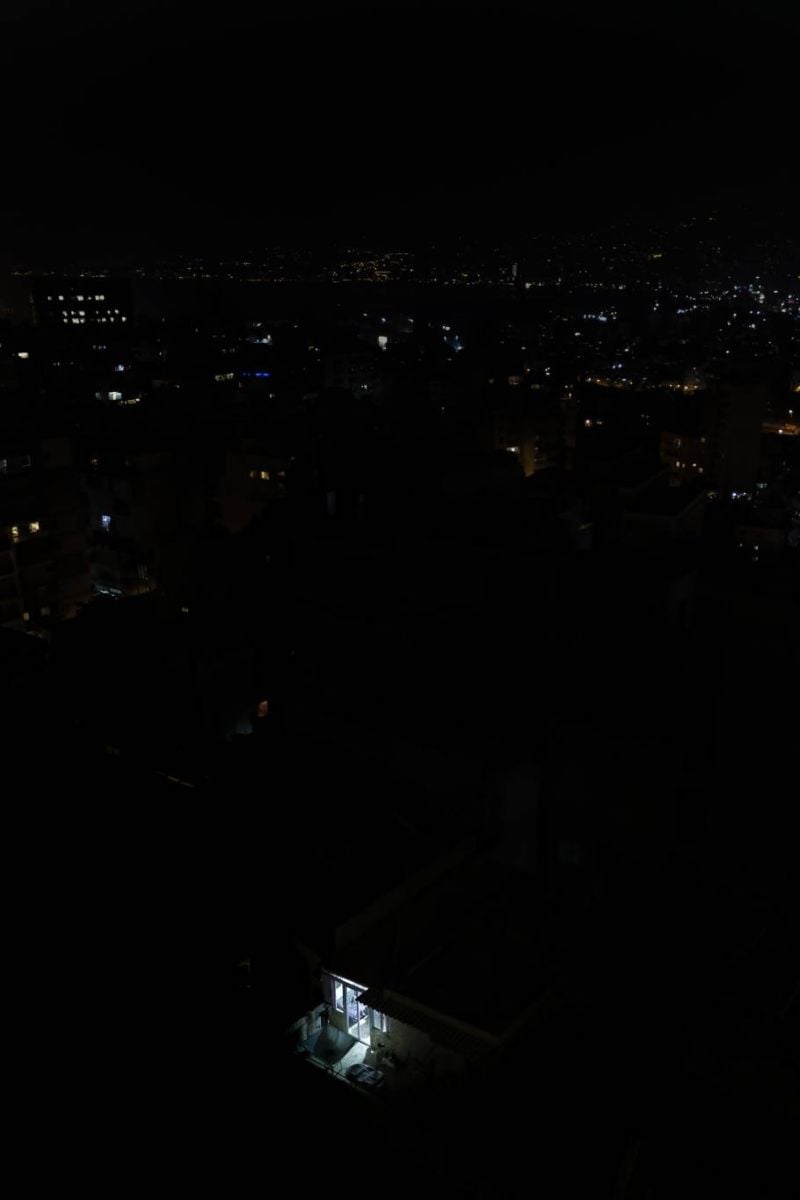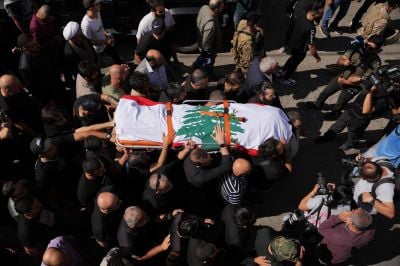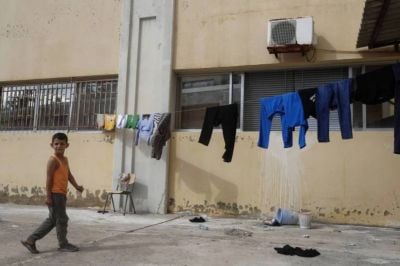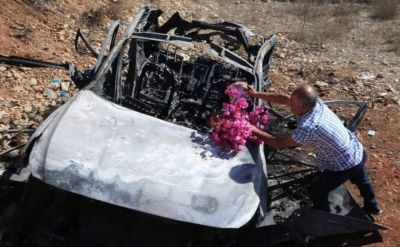
A view of Beirut at night. (Credit: João Sousa/L'Orient Today/File photo used for illustrative purposes)
Like many Palestinians, I felt a visceral fear grip me after Oct. 7 — those of us who have grown up knowing the detailed realities of Israel’s relentless violence and occupation knew the retaliation to the Hamas attacks would be severe. They’d already pounded Gaza for years for far less; what would the mighty Israeli army do now that it had some feeling of justification for the“right to defend itself”?
As a potential genocide unfolds before us, ancestral traumas are also being reactivated and the stored memories of the Nakba — Catastrophe — of 1948 in which 750,000 Palestinians were forcibly expelled from their lands are resurfacing, burning us from the inside out.
I am the child of a man who was a Palestinian refugee, and whose own parents were Libyan refugees, and a woman who is Syrian. I have inherited the traumas inflicted on those countries by European colonialists in the first half of the 20th century. Those psychological and emotional injuries have only worsened with the eruption of new conflicts in those countries in the 21st century, many of which have been worsened by Western powers.
Being born and raised in England afforded me the security that my parents had not been given in their own countries, but I am nevertheless a product of displacement and dispossession. Remaining connected to my Arab roots, which I have, also means I remain inevitably connected to those wounds.
The UK has a lot to answer for its historic and ongoing complicity in the colonization of Palestine but while I did not always agree with the politics of my birthplace, I nevertheless believed that I was an equally valued citizen. Now my government’s “unequivocal support for Israel” and demonizing anti-Palestinian rhetoric has made me feel that I am not an equal human, and my self-worth, identity and sense of belonging are being jeopardized.
Earlier this year, I launched a podcast called Third Culture Therapy where I explore the different mental health concerns of diaspora and third culture people to find out the impact their history and heritage have on their emotional wellbeing. While mental health has become a cause célèbre in recent years, it is still largely viewed and discussed through a Western lens. When my show aired, I received many messages from listeners afterward thanking me for creating something where they felt seen and heard. The general absence of discussion or concern for Arabs’ uniquely traumatic socio-political situations can be incredibly isolating and I wanted to shift the spotlight to serve people who needed it. But if I thought our mental health lacked attention before, there is now barely a thought given to how the Western world’s lack of care for our people is piercing our inner sanctum.
The intensity of the Hamas attack and ferocity of Israel’s response flipped a switch for many of us to act to try and save as many civilians in Gaza as possible. There was a flurry of mobilization, discussion, posting, talking, lobbying and marching. The “fight or flight” trauma response for many of us was to roll up our sleeves and forgo our sleep.
But after four weeks of watching a live-streamed killing of civilians in which prolific images of the mangled body parts of children have still not swayed our governments to call for a ceasefire, many of us are facing an emotional crash. Humans are simply not meant to helplessly watch this much suffering be celebrated by Israelis and Zionist supporters. The cognitive dissonance between what we know is soulfully unacceptable versus what we are being told is acceptable is compounding our inner crises.
My own emotional crash snuck up on me. I thought I could allow my anger and desperation to keep me going but eventually, my body said no. I had already suffered a panic attack on the night the Al-Ahli Hospital was bombed, killing hundreds of people. The shock of that news sent my heart racing and my breathing became rapid and irregular. My sister found me crumpled on the floor as I whispered terrified, “they’re going to kill us, they’re going to kill us all.” I am lucky she lives near me, and I am grateful for the familial security I have around me that many do not. I “recovered” the next day, or so I thought, but I was just running off fumes because a few days later I was crying in a heap again. This time, there was no stopping it, even with my mother and sister around me. I spent an entire day crying with little respite — on the bus, at the café, at home, on a walk, the tears continued to fall, an exorcism of my pain and anguish. I realized then that I had to take a step back from the news and social media to save what remained of my fraying mental health. I did so with some guilt but with the experienced knowledge that not doing so would ultimately render me useless in this long-term struggle for recognition and justice.
I know I am not alone in the emotional crash and burnout many of us are suffering from. People in my social circle are suffering panic attacks, insomnia, sickness, seizures, back pain, flu and prolonged and uncontrollable tears. Irritability, rage, anxiety and hyper-sensitivity trail us like shadows.
While the people in Gaza are enduring a catastrophic physical assault, we — their allies, descendants and witnesses — are awash with mental and emotional traumas. When the breakdowns from friends and family come — and they are coming much more frequently as we enter the second month of Gaza’s bombardment — and I listen to their heartbreak through the sobs, the words I hear most often are: “I feel so isolated and alone.”
The visceral fear generated by the war on Gaza and the widespread demonization of Palestinians and their allies that has followed has left us feeling vulnerable, exposed, our only comforts found in one another. We gather to hold one another in our mourning and pain when none of our officially designated protectors deign to. It is why the sullying of our protests with sweeping accusations of “hate marches” and “terrorism support” is like pouring salt into our gaping wounds.
It’s not bad enough that we must watch our brothers and sisters be indiscriminately killed; we are then harassed into silence and shame. To also have legitimate, historic Jewish trauma weaponized in such a way that our calls for a ceasefire are deemed antisemitic requires head-spinning intellectual acrobatics.
The assault on Gaza is an assault on us all because humanity is in fact universal. When you see the indiscriminate targeting of children, hospitals, ambulances, schools and residential neighborhoods, something deep inside of you understands that this could very easily be you.
With every building that is leveled, every hospital targeted, every mother wailing and every child bewildered by the betrayal of the world at large, another piece of our fabric is torn. This is an epic crisis of consciousness and the effect on our mind, body and spirit cannot be underestimated.
Layla Maghribi is a British Arab journalist, currently based in the UK after several years in the Middle East working for international media outlets, including Reuters and CNN International. Layla has a special interest in social issues affecting Arabic-speaking communities, particularly in relation to culture, immigration and mental health. She is currently the host of Third Culture Therapy, a podcast that explores mental well-being from a cultural perspective and is writing her first non-fiction book.


